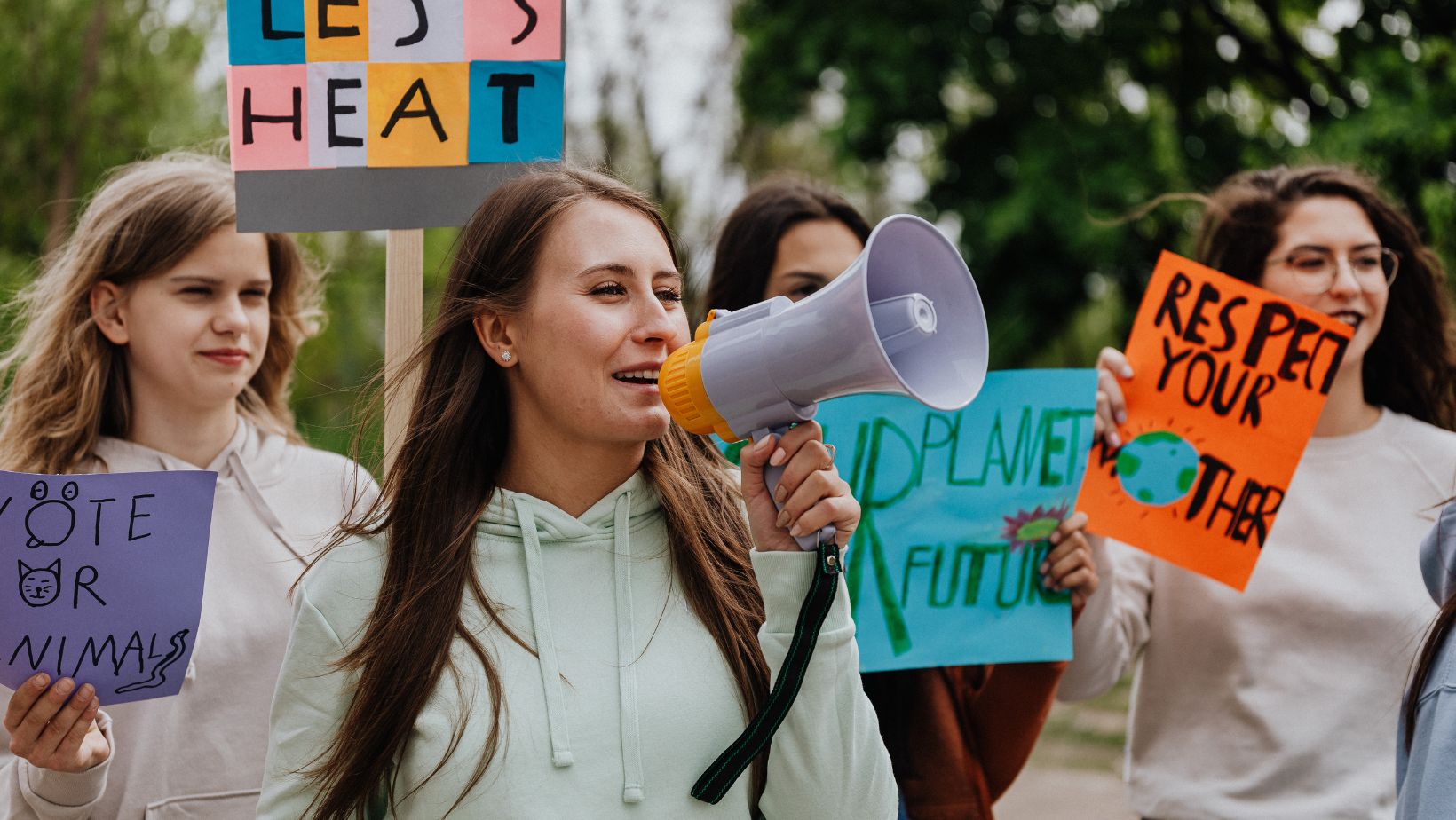
In a world where voices clamor for change, teen activism stands out as a powerful force for social, environmental, and political transformation. It’s the embodiment of young people stepping up, refusing to be sidelined, and taking charge of the narratives that shape their future. Teen activists are not just participants in the dialogues of change; they’re increasingly leading them, leveraging their unique perspectives and digital savviness to mobilize support and drive action.
What is Teen Activism
Teen activism embodies the efforts and movements led by individuals in their teens to drive social, environmental, and political changes. It involves young people stepping into roles of leadership and advocacy, utilizing their voices and platforms to address and challenge issues directly affecting their lives and communities. Through organizing protests, initiating campaigns, and engaging in dialogues with policymakers, teen activists work tirelessly to bring about change. They leverage social media and other digital platforms to amplify their message, reaching a global audience and galvanizing support from people of all ages. Teen activism not only contributes to immediate societal changes but also fosters a culture of responsibility and involvement among the youth, preparing them for future challenges.
Historical Context of Teen Activism
 Teen activism is not a novel phenomenon, as history is rich with examples of young people leading significant movements. From the Civil Rights Movement, where teenagers like Ruby Bridges and the Little Rock Nine played pivotal roles, to the anti-Vietnam War protests led by student organizations, young activists have been at the forefront of advocating for change. In the 1980s and 1990s, the fight against apartheid in South Africa saw thousands of young people organizing and participating in protests and boycotts. These historical instances underscore the powerful impact of youth engagement in socio-political issues. The lineage of teen activism showcases a long-standing tradition of young individuals taking bold steps to address injustices, influence societal norms, and shape legislative policies.
Teen activism is not a novel phenomenon, as history is rich with examples of young people leading significant movements. From the Civil Rights Movement, where teenagers like Ruby Bridges and the Little Rock Nine played pivotal roles, to the anti-Vietnam War protests led by student organizations, young activists have been at the forefront of advocating for change. In the 1980s and 1990s, the fight against apartheid in South Africa saw thousands of young people organizing and participating in protests and boycotts. These historical instances underscore the powerful impact of youth engagement in socio-political issues. The lineage of teen activism showcases a long-standing tradition of young individuals taking bold steps to address injustices, influence societal norms, and shape legislative policies.
The Impact of Social Media on Teen Activism
Social media has transformed teen activism, enabling young activists to reach a broader audience than ever before. Platforms like Instagram, Twitter, and TikTok serve as crucial tools for teens to spread their messages, organize events, and mobilize support across the globe. They share videos, images, and posts that often go viral, drawing attention to their causes from millions around the world. This digital landscape has democratized activism, offering a podium where voices, regardless of age, can instigate real change. Notably, social media not only amplifies their message but also fosters a sense of community and support among young activists. This sense of belonging strengthens their resolve and propels forward the momentum of movements.
Challenges Faced by Teen Activists
 Teen activists, despite their impactful roles in advocating for various social, environmental, and political changes, encounter numerous hurdles in their efforts. These challenges often center around lack of experience, facing scrutiny from peers and adults, and the struggle to be taken seriously due to their age. Lack of financial resources stands as a significant barrier, limiting their ability to host events or launch campaigns effectively. Additionally, balancing activism with academic responsibilities can be a daunting task, as they strive to maintain their grades while dedicating time to their causes. The digital landscape, while beneficial, also exposes them to online harassment and cyberbullying, posing threats to their mental well-being.
Teen activists, despite their impactful roles in advocating for various social, environmental, and political changes, encounter numerous hurdles in their efforts. These challenges often center around lack of experience, facing scrutiny from peers and adults, and the struggle to be taken seriously due to their age. Lack of financial resources stands as a significant barrier, limiting their ability to host events or launch campaigns effectively. Additionally, balancing activism with academic responsibilities can be a daunting task, as they strive to maintain their grades while dedicating time to their causes. The digital landscape, while beneficial, also exposes them to online harassment and cyberbullying, posing threats to their mental well-being.
How to Support Teen Activists
Supporting teen activists is crucial for the continuation and growth of their movements. Encouragement from the community, mentorship, and providing resources can empower these young changemakers to navigate challenges more effectively. It’s essential to listen to their voices, understand their causes, and respect their passion. By offering platforms for them to share their messages and by standing in solidarity with their campaigns, society can contribute to a culture that values and amplifies youth activism. Acknowledging their efforts not only fuels their determination but also inspires a new generation to step forward and make a difference. Let’s champion the spirit of teen activism by fostering an environment where their contributions are celebrated and their struggles supported. Together, we can help pave the way for a future where change is driven by the bold hearts and minds of young activists.
